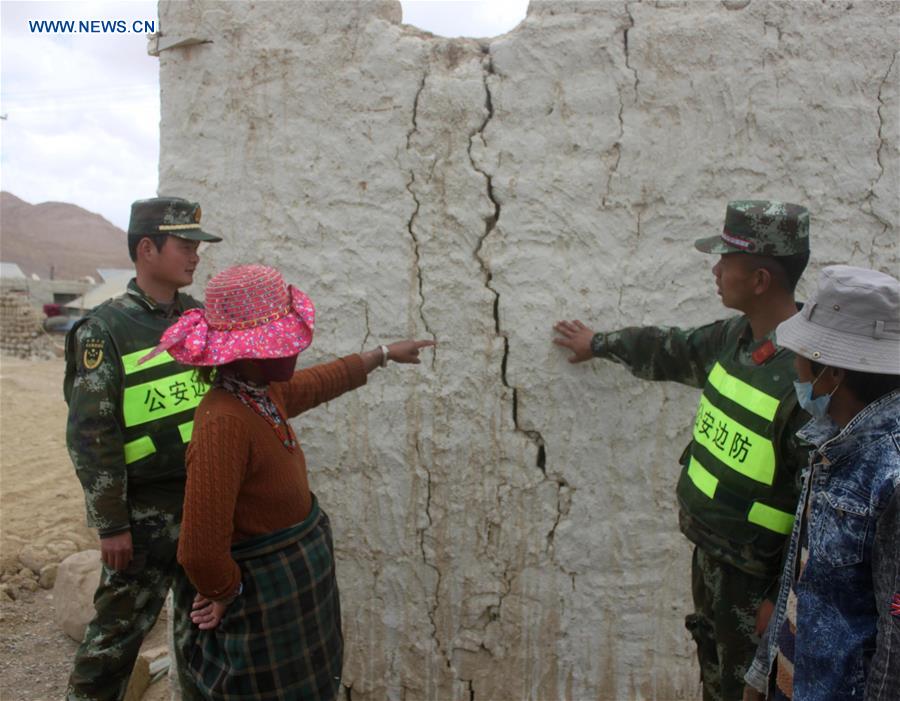China fumes as top US delegates meet Dalai Lama

By Tsering Choephel
DHARAMSALA, 10 July: US Under Secretary Uzra Zeya, who serves as the Special Coordinator for Tibetan Issues met with the Dalai Lama in New Delhi on Sunday, reported news18.
Biden’s Top official on human rights, Uzra Zeya was accompanied by a high-level US delegation during their meeting with the Dalai Lama.
The Political head of the Tibetan people, Central Tibetan Administration’s(CTA) President Penpa Tsering, Kalon (Minister) Norzin Dolma and some senior Tibetan officials were present at the meeting as well.
According to the report, the discussions at the meeting covered topics ranging from the current situation in Tibet, the effort to resurrect dialogue with China and ways to amplify support for the Tibetan cause on the global stage.
The Biden Administration’s point person for Tibetan issues meeting with the Dalai Lama immediately drew sharp criticism from Beijing.
Wang Xiaojian, spokesperson of the Chinese Embassy in New Delhi has strongly condemned the meeting in a tweet declaring Tibet affairs are “purely internal affairs of China” and added that “no external forces have the right to interfere”.
Moreover, Xiaojian called the “US Special Coordinator for Tibet Issue”, a position currently held by Uzra Zeya, a “pure offence and a move of political manipulation to interfere in China’s internal affairs.”
The Tibetan spiritual leader left for Delhi from his exile residence here on Saturday. While speaking to the media at Gaggal airport as the Dalai Lama embarks on his Ladakh trip via Delhi, he reiterated his stand and openness to talk with his Chinese counterpart to discuss the Tibet issue saying “We are not seeking independence, we have decided since many years that we remain part of the People’s Republic of China”.
“I am always open to talk. Now China also realises that the spirit of Tibetan people is very strong. So, in order to deal with Tibetan problems they want to contact me. I am also ready”, he added.
CTA President Tsering confirmed during his appearance on BBC hard talk in May, that dialogue with Beijing is being built through back channels. However, he stopped short of disclosing further information declaring that “It is too early to talk about it.”
Despite the significance of dialogue to be carried between the exiled Tibetans and Beijing in resolving the Tibet issue, what many observers suspect and fear is Beijing’s strategy to narrow the Tibet issue only to the affair of the Dalai Lama.
The 14th Dalai Lama himself relinquished his political authority in 2011 over the democratically elected leader Sikyong(political head): reforming the centuries-old tradition and paving the way for Tibetans to continue their struggle post-Dalai Lama.
Nine rounds of talks were held between the envoys of His Holiness the Dalai Lama and representatives of China’s United Front Work Department since 2002.
During the course of nine rounds of Sino-Tibetan talks, the Tibetan side had presented to the Chinese leadership a Memorandum and Note seeking genuine autonomy for Tibet as enshrined in the Chinese constitution and Law on Regional National Autonomy.
The ninth and last round of talks was held in 2010 and in 2012, the envoys of His Holiness the Dalai Lama resigned from their positions citing the overall deteriorating situation inside Tibet and “lack of willingness and sincerity” from the Chinese side.





